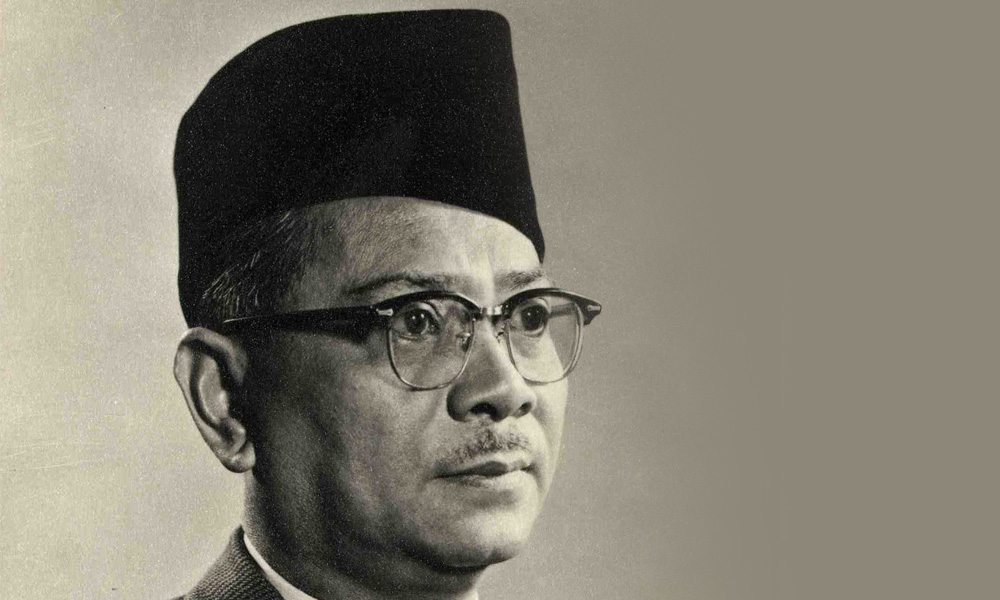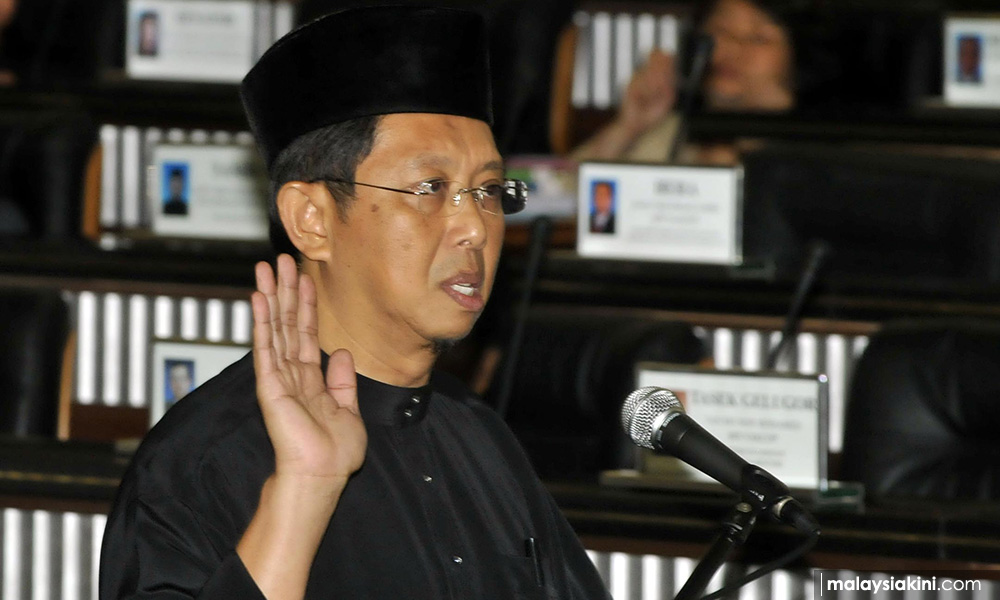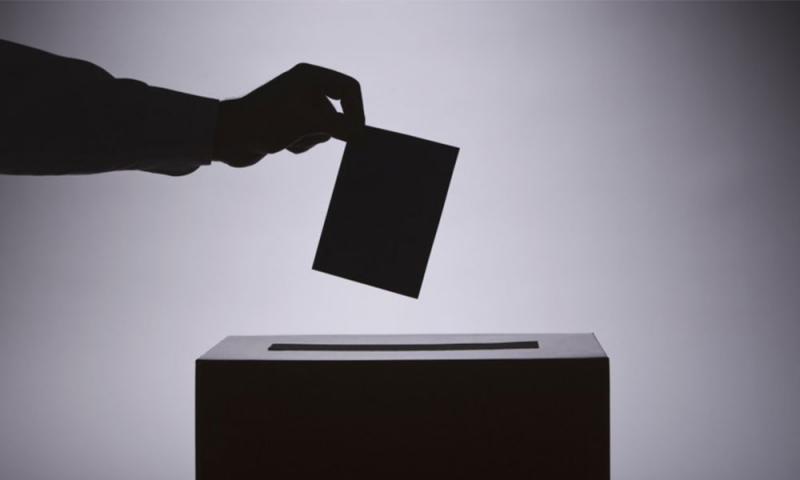COMMENT | Upholding the rich tradition of betraying voters
COMMENT | On Monday, Malaysians were treated to the fine sight of Perikatan Nasional parliamentarians strutting their stuff proudly on the national stage.
At the same time, independent journalists were barred, a no-confidence motion was denied and much money was spent to bring all the MPs together for just an hour.
Some of those who defected from Pakatan Harapan appeared to have an extra spring in their step.
And so they should.
After all, they are just the latest in a long list of elected representatives who have spat upon the aspirations of voters who gave them the job in the first place.
In fact, the history of Malaysian democracy is filled with glittering examples of elite powers moving to subvert the will of the people, even after an election has been won.
This proud tradition harks back to the early 1960s, in fact.
Now, while the 1955 general election had been an overwhelming triumph for Tunku Abdul Rahman's Alliance Party, 1959 actually revealed the growing strength of the urban opposition Socialist Front coalition between Parti Rakyat and the Labour Party and the rural base of PAS (then known as the Pan Malayan Islamic Party or PMIP).

PMIP even won two states, Kelantan and Terengganu. And it was in the latter instance that the first example of voter betrayal occurred.
PMIP had won 13 state seats, while the Alliance won seven and Onn Jaafar’s Parti Negara won four.
Thus, PMIP's Setiu assemblyperson Md Daud Abdul Samad was sworn in as the menteri besar of Terengganu.
Halfway through his term, however - in October 1961 - two PMIP and three Parti Negara representatives defected to Umno which then passed a motion of no-confidence in Daud’s government.
Umno’s Ibrahim Fikri Mohammad replaced Md Daud as menteri besar and the tradition was established.
Your guess is as good as mine as to what might have lured the five assemblypersons to switch sides. Two goats and a kite each, maybe?
The Umno-led Alliance wasn’t done yet, though.
It was alarmed at the Socialist Front’s strength in the cities and the latter even managed to gain 13 out of 14 seats in George Town, Penang, during the 1961 local elections and also bagged the Malacca municipal elections.
The move to subvert democracy and silence the leftists was two-pronged.
Firstly, Umno used the Internal Security Act to detain almost every elected Socialist Front MP and state assemblyperson without trial during the 1963 Confrontation with Indonesia.

Next, it passed the Emergency (Suspension of Local Government Elections) Regulations 1965, which meant that it would no longer have to subject itself to the scrutiny of local elections and could instead appoint its own members as mayors.
It has actually happened time and time and time again.
In 1966 Stephen Kalong Ningkan, whose Sarawak National Party (SNAP) had spearheaded an Alliance win in 1963’s indirect election, was toppled by an internal revolt from within the Alliance, for pushing for land reforms.
And that wasn’t the last time.
In the aftermath of the May 1969 general election and ensuing racial riots, there was another round of subversion of democratic will.
Penang had elected an opposition government under Gerakan and the Alliance was nearly toppled in Perak and Selangor, too.
But after the lengthy suspension of Parliament itself, two key opposition political parties – Gerakan and the People’s Progressive Party were co-opted into the new Barisan Nasional – and once again the people’s vote was negated.
Interestingly, another move during this time was to take Kuala Lumpur out of Selangor, just before the 1974 election, the first after 1969.
While it was done ostensibly for administrative purposes, it also had the effect of removing a large voter base of opposition supporters from the Selangor state elections equation.
Coincidence? Methinks not.
So there you have it - Joseph Pairin Kitingan’s PBS won the Sabah state election in 1994, but was toppled through defections soon after.
Perak’s Mohammad Nizar Jamaluddin (below) was the democratically elected menteri besar in 2008, but a year later, defections took away his majority.

And now, as I wrote in the week prior to the Sheraton Move, Malaysians are being shown, time and time again, that in practical politics, our vote means very little.
In far too many cases, it has proven to be all about elected representatives taking our mandate and then using it as a basis for their own horse-trading.
We saw Bersatu MPs – most of whom won their seats on the back of PKR, DAP and Amanah support – jump across the fence almost wholesale, while some notable Reformasi heroes in PKR turned their back on their own legacies to team up with Umno and PAS.
The Federal, Johor, Malacca, Perak and Kedah governments are now run by leaders and administrations that the people did not vote for in May 2018.
This does beg the question – are we destined forever to be ruled by the corrupt, incompetent and moderately evil?
I say moderately evil because as far as dictatorships go, I guess Malaysia is not that bad.
There is no genocide, large-scale political arrests, media suppression, enforced disappearances – oh, wait a minute.
On Monday, the Yang di-Pertuan Agong called for stability and an end to politicking while at the same time BN secretary-general Annuar Musa was rumbling about toppling more elected governments – with the crown jewel of Selangor a perceived target.
Considering all the “success” that the defectors and Umno/PAS have had with their politicking in the last three months, it’s going to take a lot of willpower for them to abandon this particular tradition.
MARTIN VENGADESAN is a Malaysiakini team member.
RM12.50 / month
- Unlimited access to award-winning journalism
- Comment and share your opinions on all our articles
- Gift interesting stories to your friends
- Tax deductable

 Martin Vengadesan
Martin Vengadesan